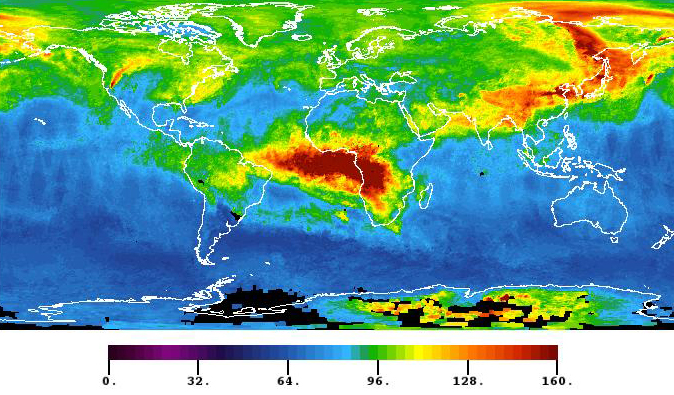NASA Satellites Track California's Rim Wildfire from Space

NASA satellites in orbit high above the surface of the Earth are keeping close tabs on the massive wildfire currently raging in California.
The California Rim Fire was previously spotted from space by NASA astronaut Karen Nyberg on the International Space Station, but new images beamed down to Earth from NASA's Aqua and Terra spacecraft are showing the wildfire in a new light.
One image taken by the Terra spacecraft's Multi-angle Imaging SpectroRadiometer instrument (MISR) shows smoke rising from the fire that began on Aug. 17 and has burned through nearly 180,000 acres (72,843 hectares) as of Aug. 27, according to NASA officials.
"On the morning of Aug. 23, Terra passed over the fire, allowing MISR’s nadir (vertical-viewing) camera to capture an image of extensive, brownish smoke," NASA officials wrote in a release. "The imaged area measures 236 by 215 miles (380 by 346 kilometers)."
Another photo, captured on Aug. 26 by Aqua's Atmospheric Infrared Sounder (AIRS) instrument shows a plume of carbon monoxide emanating from the California Rim Fire. The image shows a three-day running average of carbon monoxide at an altitude of 3.4 miles (5.5 km) above the planet, NASA officials wrote in a statement.

"AIRS is most sensitive to carbon monoxide at this altitude, which is a region conducive to long-range transport of the smoke," NASA officials wrote. "As the carbon monoxide from the fire is lofted into the atmosphere, it becomes caught in the lower bounds of the mid-latitude jet stream, which swiftly transports it around the globe."
As of Aug. 27 the wildfire was 20 percent contained with more than 3,600 personnel battling the blaze. The California Rim Fire is one of 10 major active wildfires burning in California, according to NASA officials. The wildfire has threatened homes, Yosemite National Park, sequoias and the San Francisco water supply.
Breaking space news, the latest updates on rocket launches, skywatching events and more!
NASA's Aqua and Terra satellites are prolific Earth-watching observatories. The Aqua satellite launched in 2002, while the Terra satellite launched in 1999.
Follow Miriam Kramer @mirikramer and Google+. Follow us @Spacedotcom, Facebook and Google+. Original article on SPACE.com.
Join our Space Forums to keep talking space on the latest missions, night sky and more! And if you have a news tip, correction or comment, let us know at: community@space.com.

Miriam Kramer joined Space.com as a Staff Writer in December 2012. Since then, she has floated in weightlessness on a zero-gravity flight, felt the pull of 4-Gs in a trainer aircraft and watched rockets soar into space from Florida and Virginia. She also served as Space.com's lead space entertainment reporter, and enjoys all aspects of space news, astronomy and commercial spaceflight. Miriam has also presented space stories during live interviews with Fox News and other TV and radio outlets. She originally hails from Knoxville, Tennessee where she and her family would take trips to dark spots on the outskirts of town to watch meteor showers every year. She loves to travel and one day hopes to see the northern lights in person. Miriam is currently a space reporter with Axios, writing the Axios Space newsletter. You can follow Miriam on Twitter.
